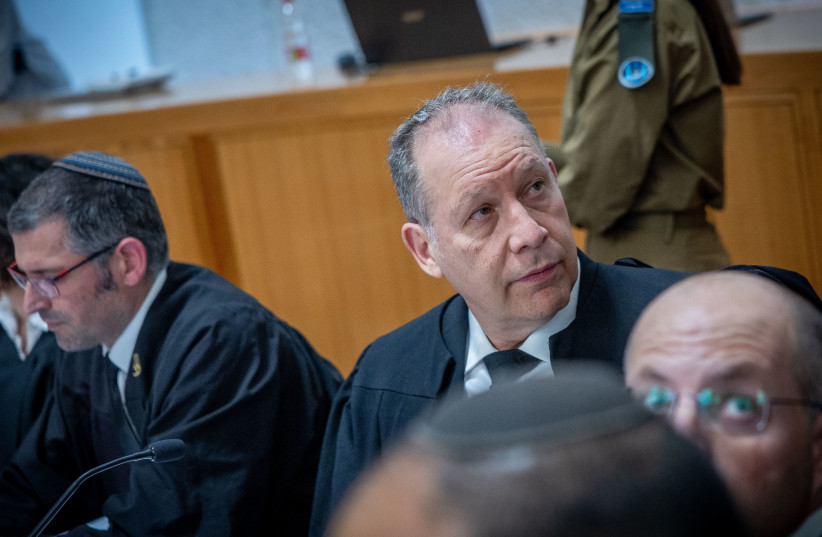Israel’s government attorney questions ‘hasty’ Declaration of Independence
Ilan Bombach, the attorney representing the government, Prime Minister Benjamin Netanyahu, and Justice Minister Yariv Levin challenged whether it was the authority of the court to Basic Laws. He said that the court has always been an interpretive body, and this amendment had such a clear text, there is nothing to interpret.
The court asked Bombach from where the source of the Knesset’s constituent authority was derived.
Bombach said that the Harari compromise sanctioned the Knesset to establish constitutional articles in incremental chapters.
Bombach: Declaration of Independence does not give authority to judicial review
“It can’t be said that the hastily-signed signatories to the Declaration of Independence gave you the authority for judicial review,” said Bombach.
The signatories were not representative of the populace, so they had no authority to establish something that would be a constitution. The court’s authority comes from the constituent authority’s legislation.

The government respects the Declaration of Independence, said Bombach, but ultimately its authority to introduce basic laws comes not from the declaration, but the will of the people.
Hayut challenged him for why he said at first that the Harari compromise was the source of the authority. Bombach said he was clarifying, and said that the court didn’t have the power to strike laws, because it couldn’t be that the court could create the limits of its own authority.
The court argued with Bombach that one election does not give the authority to change the separation of powers but to pass regular laws. Only with a special majority can such a thing occur.
“The Knesset can not harm the democratic structure of the state, but those that review this is the nation,” said Bombach.
The court questioned Bombach’s explanation that the role of the nation was to check the Knesset, and if the Knesset could pass laws limiting the voting power of the people. The court warned that it may not immediately recognize that this is happening.
Justice Yitzhak Amit said that democracy doesn’t usually die all at once, “democracy dies in small steps.”
Bombach reminded that he qualified his written arguments to the court that he didn’t receive a meaningful extension of time, and he and his clients wanted another hearing. The court argued that there had been many petitions discussed in one hearing for the nation-state law.
Baron asked if the law, which said that the court can’t deliberate on reasonableness, allowed for discussions of different types of reasonableness.
“What’s written is written,” said Bombach.
Bombach cited the writings of Justice Noam Sohlberg, warning about the subjectivity of the reasonableness standard.
Amit questioned Bombach as to why legislation was needed for a standard under which there were so few rulings each year.





Comments are closed.